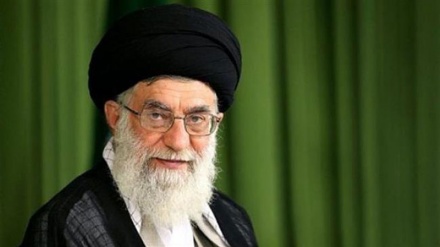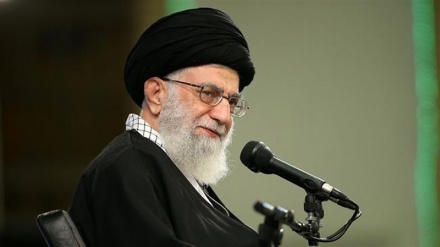In Presence of the Sun (80)
This episode will touch upon the topic of culture and national identity with a focus on the views of the Leader of the Islamic Revolution Ayatollah Seyyed Ali Khamenei. Hope you’ll enjoy it.
Human communities are not separate and distant islands but rather they live together and affect each other reciprocally. What distinguishes one place from another, besides geographical border, is the native culture. Every region has its special language, traditions and customs. These characteristics mold the identity of that region. In view of this, preservation of native identity grants status and dignity to the individuals of that certain region. In a big society, native subcultures continue their growth in the shadow of national culture. They, in turn, strengthen national culture. The stronger and more deep-rooted the national culture the more robust and firm the national identity will be.
Ayatollah Khamenei believes that the issue of culture is very vital in a society and it shows the rationality of that society. If the culture of a society is really correct that society will move toward economic growth, welfare, freedom and other blessings. A good culture will pave the ground for economic, scientific, and political growth and power. This will lead the society toward its lofty goals.
In his letter to the youths in the west, Ayatollah Khamenei, referring to the native and national cultures, wrote, “Many countries take pride in their native and national cultures; cultures that, besides thriving and regeneration, have well fed human communities for hundreds of years. The Islamic culture is not an exception to this. But in the current era, the western world with the use of advanced tools insists on the cultural assimilation of the world. I consider the imposition of western culture on other nations and trivialization of independent cultures as a silent violence and very detrimental. Humiliating rich cultures and insulting the most honored parts of these, is occurring while the alternative culture being offered in no way has any qualification for being a replacement. For example, the two elements of “aggression” and “moral promiscuity” which unfortunately have become the main elements of western culture, has even degraded the position and acceptability of its source region.
So now the question is: are we “sinners” for not wanting an aggressive, vulgar and fatuous culture? Are we to be blamed for blocking the destructive flood that is directed towards our youth in the shape of various forms of quasi-art?”
Ayatollah Khamenei has never been opposed to cultural bonds. As it was mentioned in the beginning of the program human communities are not separate islands but they both affect and are affected. The Leader refers to the positive and negative cultural bonds and announces that he knows the importance and value of cultural bonds. Expressing his sadness, Ayatollah Khamenei continues, “I have to state with full regret that vile groups such as DAESH are the spawn of such ill-fated pairings with imported cultures. If the matter was simply theological, we would have had to witness such phenomena before the colonialist era, yet history shows the contrary. Authoritative historical records clearly show how colonialist confluence of extremist and rejected thoughts in the heart of a Bedouin tribe, planted the seed of extremism in this region. How then is it possible that such garbage as DAESH comes out of one of the most ethical and humane religious schools who as part of its inner core, includes the notion that taking the life of one human being is equivalent to killing the whole humanity?
Cultural bonds sometimes lead to prosperity and growth while at times they cause decadence and corruption. Safeguarding national culture and enriching it is valuable but undermining it will result in irreparable harms for the society. Ayatollah Khamenei elaborates on this, “If culture in a country goes through decadence and a nation loses its cultural identity even the progresses injected by others will not be able to grant the country the status it deserves among humanity and preserve the interests of that nation.”
Bolstering and breeding some qualities like self-belief and self-confidence are very effective in national identity. If self-reliance is stressed from childhood through the school and university then our national identity and culture will be harmed less in confrontation with other cultures.
Ayatollah Khamenei maintains that culture should be administered. He believes that the government and its affiliate bodies play an important role in this connection. He says, “As for culture, the conduct of the government should be affectionate and like the conduct of a gardener. The cultural climate of the country must be gardened; it means that this issue should be pursued responsibly and precisely.”
Lack of proper and responsible management will yield no fruit but disorder. The Leader of the Islamic Revolution emphasizes that culture, too, should have order and regulation. Just like the ministry of health, which doesn’t allow contaminated food and medicine be presented for the people; as for culture, too, we should incessantly keep an eye on presentation of cultural goods to people so that their mind and spirit is not polluted and corrupted.
Ayatollah Khamenei clearly points to cultural supervision, saying, “What is incumbent on the government in the issue of culture is the clever, thoughtful and conscious supervision, prevention of any waste of forces and growth of weeds, guidance of society on the right direction and helping the cultural growth and progress of individuals. This big number of humans, especially the youths in society, should be helped to be able to push forward their proper way and growth. We neither believe in debauchery and libertinism which will lead to chaos; nor do we believe in strictness. But we believe in supervision, management, precision in planning and proper recognition of realities.”
RM/ME


